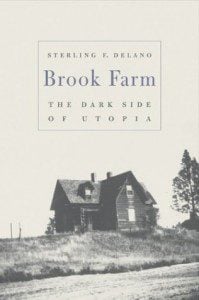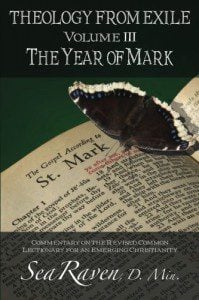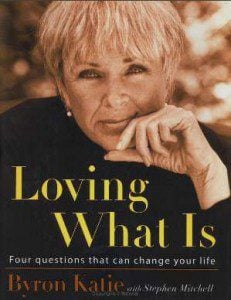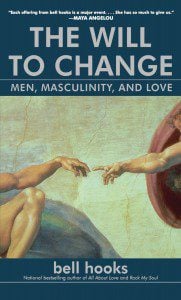Backing up a few verses to look at the preceding context for this week’s Gospel Lesson (Mark 13:24-37), in Mark 13:14 the Gospel writer makes a curious aside: “But when you see the desolating sacrilege set up where it ought not to be (let the reader understand), then those in Judea must flee to the mountains.” I am fascinated that Mark did not place his hopes in his audience reading between the lines. He, instead, explicitly inscribed a parenthetical reference “(let the reader understand)” into the text as a flashing neon sign that says, “READ BETWEEN THE LINES!”
Mark meant, “I’m saying something about the unjust Roman occupation of the Jewish homeland.” When he says, “let the reader understand,” he means, “I can’t risk being any more explicit.” He knows that he is writing about how the good news of God is sometimes in conflict with what Caesar claims is ‘good news’. Mark knows that he is writing about Jesus in a way that came to inspire activists such as Martin Luther King, Jr., Gandhi, and Aung San Suu Kyi.
Verses like these remind me of why I never tire of studying and teaching the Bible. As Desmond Tutu has said, “There’s nothing more radical, nothing more revolutionary, nothing more subversive against injustice and oppression than the Bible. If you want to keep people subjugated, the last thing you place in their hands is a Bible.” Or, similarly, to follow the Forrest Gump Principle, as described by theologian Bruce Epperly, “The Bible is like a box of chocolates. You never know what you’re gonna get.” When you slow down and read the Bible carefully for yourself, you will almost always be surprised by what you find.
When I find oddball passages like a parenthetical reference from Mark to “let the reader understand,” I sometimes pull out my King James Bible and look up the verse. And my reaction is almost always the same: “Son of gun! That verse has been in there all along.” In this case the verse reads, “(let him that readeth understand.)” You could go back to the Greek manuscripts, but seeing weird, under-appreciated, challenging verses in King James English is somehow more satisfying to me.
Jesus was a Jewish peasant, born in a time when the Roman Empire occupied and controlled the Jewish homeland. He was penniless and homeless. He had only his reliance on the hospitality of others and his relentless passion for God’s way of love and justice. Witnessing the corruption of the first-century religious establishment, he sought to disrupt the operation of the Temple — that sacred space intended to be a “house of prayer for all nations,” a holy place worthy of sacrifices such as that sacrifice made by the widow who put her last coins in the treasury — a sacred space that had devolved into, for the most part, a “house of thieves.” So Jesus risked his own body — overturning tables and chairs — to disrupt, if only partially and briefly, the corruption that had become ‘business as usual’ at the intersection of selfishness and greed that so often corresponds with the intersection of religion and politics.
In our own time, Jesus’ willingness to risk even his own life to expose injustice inspired Civil Rights activists to nonviolently face dogs and water hoses. Jesus example has also inspired the Civil Disobedience of Gandhi’s many nonviolent campaigns to attain greater freedom and equality in India. Similarly, Aung San Suu Kyi, the Nobel Peace Laureate, has been released from house arrest in Burma, where she has lead the resistance to the military junta that tightly controls the country also known as Myanmar.
From MLK to Gandhi and from Aung San Suu Kyi to #OccupyWallStreet, each of these individuals and movements throughout history that have sought greater compassion and justice through nonviolent social change can give us different insights into Advent (#OccupyAdvent?!) — as well as challenge us in how we demonstrate compassion, love, and justice each day.
For Further Study
- Ched Myers, Binding the Strong Man: A Political Reading of Mark’s Story of Jesus.
- ________, “Say to This Mountain”: Mark’s Story of Discipleship.
- Rick McKinley, et al, Advent Conspiracy: Can Christmas Still Change the World?
Notes
- For the source of the Tutu quote, see Jennifer Riley, “Nothing More Radical Than Bible in Injustice Fight” in The Christian Post (September 8, 2008). Available at http://www.christianpost.com/article/20080908/nothing-more-radical-than-bible-in-injustice-fight-says-tutu.
- The Forrest Gump Principle — see Bruce G. Epperly, “The Forrest Gump Principle,” Patheos 2010.
The Rev. Carl Gregg is a trained spiritual director, a D.Min. candidate, and the pastor of Broadview Church in Chesapeake Beach, Maryland. Follow him on Facebook (facebook.com/carlgregg) and Twitter(@carlgregg).












